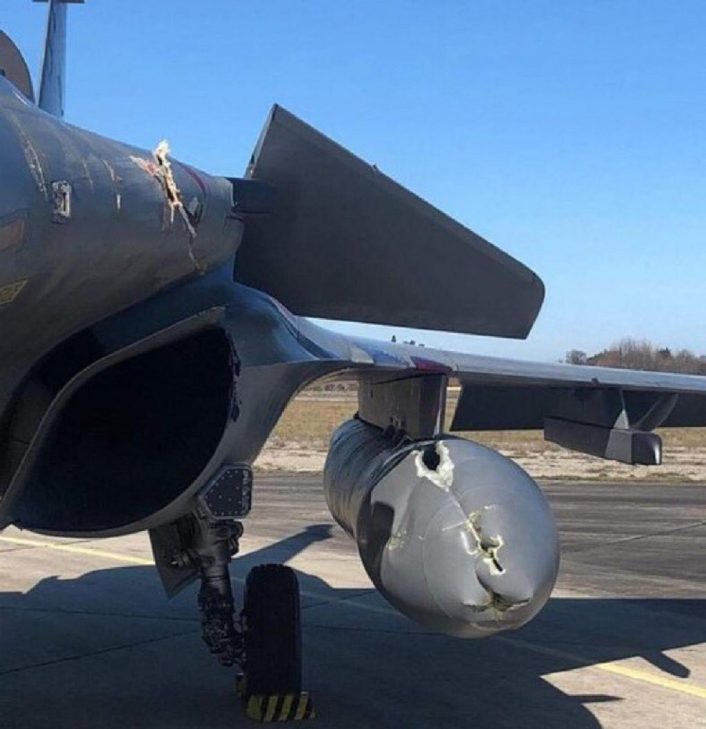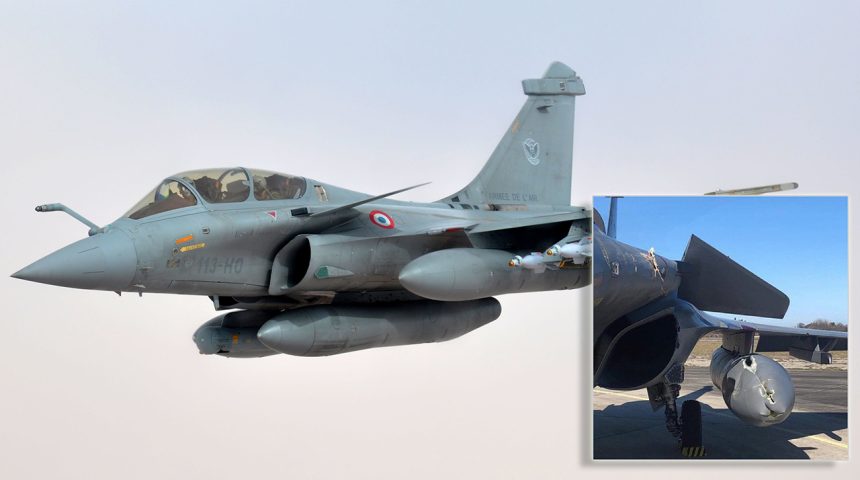The damaged Rafale aircraft landed safely ten minutes later. No casualties were reported on the ground.
A Rafale of the Armée de l’Air et de l’Espace (French Air and Space Force) struck medium voltage power lines during a low altitude training flight at around 2PM local time on Feb. 17, 2021 near Le Castellet (Alpes-de-Haute-Provence). The aircraft, belonging to the 4e Escadre de Chasse (4th Fighter Squadron), took off together with another Rafale from the Base aérienne 113 Saint-Dizier-Robinson.
According to the local newspaper La Provence, the Rafale was flying at less than 80 m (about 260 ft) when it hit and subsequently cut three cables of the power lines, leaving the nearby town of Le Castellet without electricity for about three hours. After falling to the ground, the damaged cables caused a small fire which was quickly extinguished by the firefighters that were alerted by the locals as they saw the incident unfolding.
The possible location of the incident should be alongside the D12 road, which was reported interrupted while the firefighters were on scene and damage was being repaired, between Oraison and Le Castellet, near the Itardes district. In that area, by using Google Maps satellite view and street view, two parallel medium voltage power lines of three cables each can be seen crossing the valley after leaving a hydroelectric power plant.
The damaged Rafale landed safely ten minutes later at the Base aérienne 115 Orange-Caritat, as confirmed by an Air Force spokesperson to La Provence: “There were no casualties. This in-flight incident forced the pilot of the aircraft to land safely at 14:11 [at the Orange air base]. [We] deplore this extremely rare incident”. An investigation has been initiated by the Armée de l’Air et de l’Espace and the Bureau Enquêtes Accidents pour la sécurité de l’aéronautique d’État (Bureau of Accident Investigation for the Safety of State Aeronautics).

The Rafale hit the cables with the left wing area. Damage compatible with the three cables can be seen near the pivot point of the left canard, the canard itself, air inlet, landing light, external fuel tank and wing. While the canard, wing and air inlets sustained only dents and scratches, damage is more extensive on the fuel tank and the fuselage near the pivot point of the canard, where the cables cut holes in the metal and composite materials.
Similar incidents happened in 2012 and 2014, involving a Mirage 200 and Mirage F1CR respectively. Following the investigations, the BEA-É recommended the AdlA to limit the minimum altitude of training flights, establish specific low altitude training areas and focus on best practices to maximize safety during this type of flight, as well as the creation of an exhaustive list of power lines in order to identify those constituting a significant danger to air traffic and check their signalling systems.









